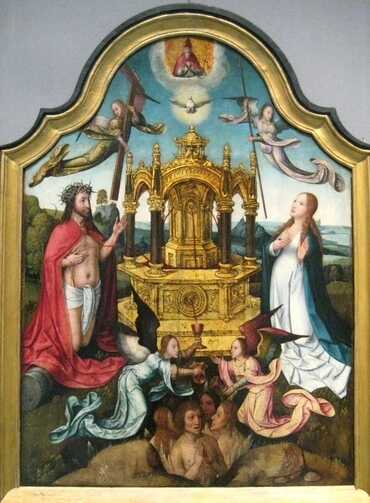2
Say to the children of Israel, If a woman is with child and gives birth to a male child, she will be unclean for seven days, as when she is unwell.
3
And on the eighth day let him be given circumcision.
4
And she will be unclean for thirty-three days till the flow of her blood is stopped; no holy thing may be touched by her, and she may not come into the holy place, till the days for making her clean are ended.
5
But if she gives birth to a female child, then she will be unclean for two weeks, as when she is unwell; and she will not be completely clean for sixty-six days.
6
And when the days are ended for making her clean for a son or a daughter, let her take to the priest at the door of the Tent of meeting, a lamb of the first year for a burned offering and a young pigeon or a dove for a sin-offering:
7
And the priest is to make an offering of it before the Lord and take away her sin, and she will be made clean from the flow of her blood. This is the law for a woman who gives birth to a male or a female.
8
And if she has not money enough for a lamb, then let her take two doves or two young pigeons, one for a burned offering and the other for a sin-offering, and the priest will take away her sin and she will be clean,







